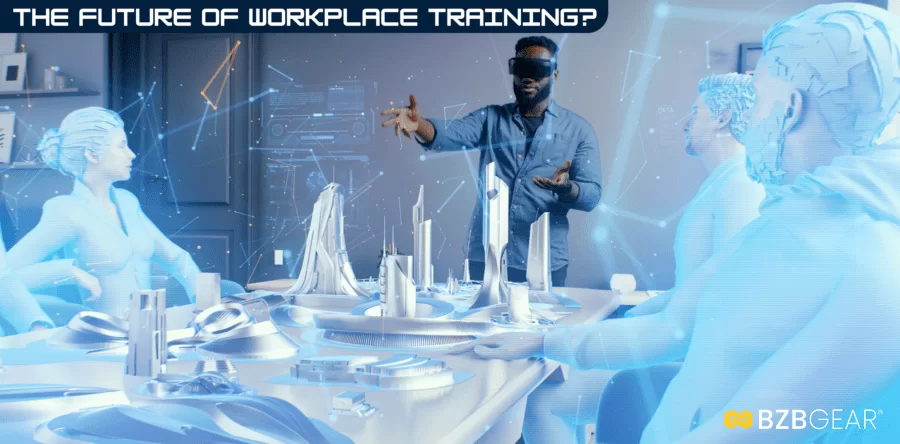Is Augmented Reality the Future of Workplace Training?

Augmented Reality (AR) is an innovative technology that can be used for training purposes in various industries. AR overlays digital information in the real world, creating an immersive and interactive experience for users. Here are some ways in which AR can be used for training:
Simulation-based training: AR can be used to create simulated environments for training purposes. For example, it can be used to simulate the operation of complex machinery or equipment, allowing trainees to practice without the risk of real-world consequences. Even in tech-oriented industries, new technology can be intimidating for trainees, impacting their confidence, which interferes with their overall training experience. Minimizing stress in the training process can even improve memorization. Furthermore, this method can help reduce training costs and improve trainee performance in the long run.
Guided instruction: AR can also be used to provide guided instruction to trainees. This involves overlaying digital instructions onto the real world to guide trainees through a task. For example, it can be used to guide trainees through the steps of a complex assembly process. Have you ever gone through a video game tutorial? It’s similar in that, you are tasked to go through the motions on your own, but you have guided steps on the screen that help you complete and memorize the functions more efficiently.
Interactive training: AR can be used to create interactive training experiences. This involves overlaying digital information in the real world and allowing trainees to interact with it. For example, it can be used to create a scavenger hunt where trainees must find and interact with virtual objects in the real world. These types of activities can encourage memorization and enhance confidence. Trainees will have to visually recognize certain objects and understand what they are and where they are supposed to be, further facilitating critical thinking or correlations.
Overall, AR has the potential to revolutionize the way training is delivered, making it more engaging, interactive, and effective. However, it is important to ensure that the technology is used in a way that is relevant and effective for the training objectives. Next time you are organizing a training session, try mixing AR training with hands-on training!
8.00 a.m. - 5.00 p.m. (PST)
10.00 a.m. - 3.00 p.m. (PST)
(by appointment only)




